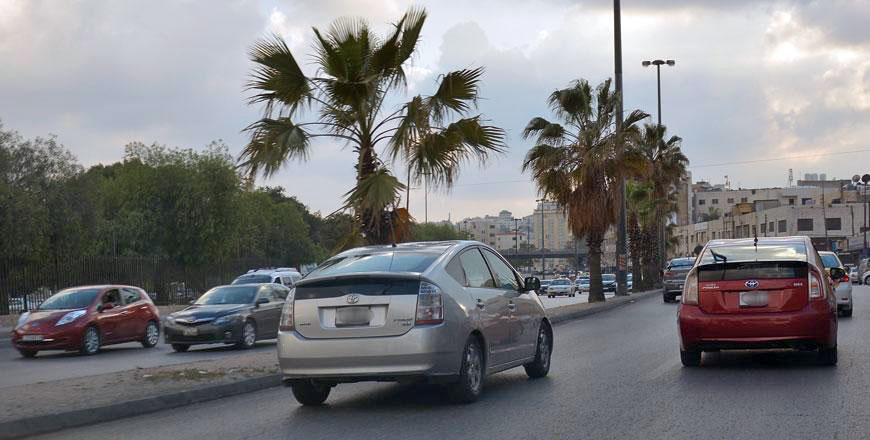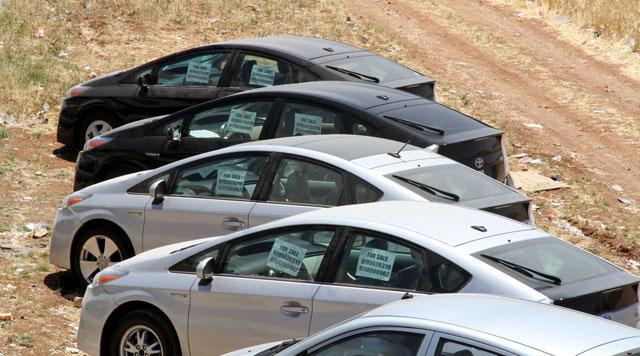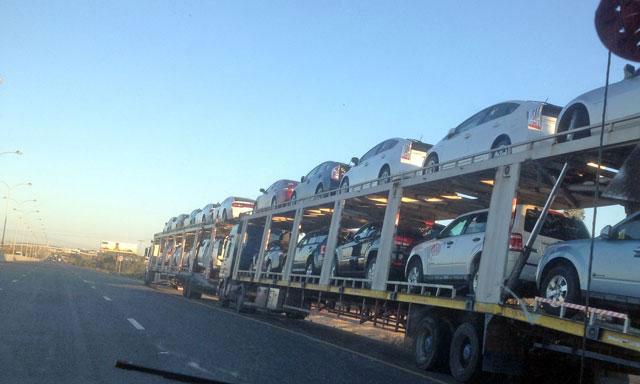You are here
Hybrid, electric car dealers struggle against tax hikes, fear further market stagnation
By Maram Kayed - Feb 12,2019 - Last updated at Feb 12,2019

In this undated photo, hybrid cars are seen on a street in Amman (Photo by Amjad Ghsoun)
AMMAN — The total trade value of hybrid cars in January plummeted an estimated 85-90 per cent, compared with the same period last year, according to Deputy President of the Jordan Free Zones Investors Association (JFZIA) Hisham Quteishat.
The drop, as Quteishat explained, is a “direct result” of the 35 per cent clearance tax hike on hybrid vehicles imposed late in 2018, effective as of January this year.
“Only 137 hybrid cars were cleared into the country this month, when almost 3,000 cars passed through customs the same time last year,” he said.
Speaking to The Jordan Times over the phone, Quteishat said that the clearance tax will continue to increase in the coming two years.
The special clearance tax on hybrid vehicles will reach 40 per cent in 2020 and 45 per cent in 2021, the government announced last year.
“The sector will not live to see another year if sales continue to decline so sharply,” added Quteishat.
Owner of car trading company “Alkhayar Alafdal” Rami Al Shafeyah estimates the decline in sales, in the years 2017-2018, at nearly 35 per cent.
“We estimate another 60-70 per cent fall in sales this year, from last year’s overall sales,” he warned, as he underlined the “frightening stagnation in the market”.
Shafeyah described the trade showrooms at the free zones as “ghost towns”, in reference to the crumbling demand.
In the meantime, demand on electric cars has increased, JFZIA figures show.
Electric vehicle clearance rose by 56 per cent in January 2019, compared with the same period last year.
Meanwhile, stakeholders attributed this increase to the Prime Ministry’s decision to exempt electric cars from a 25 per cent tax increase until April 30.
Notably, the tax on electric vehicles is newly introduced, as they were exempt of clearance tax altogether.
“The number of cars going through customs is not indicative of an increase in trade volume. It is simply that most of these cars were bought late last year and have arrived now after a four-month shipping journey from the US,” said Quteishat.
He added: “The total number we are expecting is 1,500 cars, and 500 of those already arrived in January.”
Shafeyeh concurred.
“These cars will arrive but will not be sold,” he added.
Customs clearance, taxes and licensing used to cost a total of JD900 at one point. Now, these combined costs are estimated at some JD6,000, he underlined.
“These cars can only go for around 150km on a full charge, on average, and there are only seven car service and gas stations in the whole country that offer electric-car power stations,” he noted.
“The only attractive thing about them was their price, and now that is gone,” he concluded.
Related Articles
AMMAN — A government decision to increase the tax on hybrid vehicles to reach 45 per cent came into effect on Friday, much to the displeasur
AMMAN — Electric car sales went down by 70 per cent in April as a 25 per cent tax hike on the vehicles went into effect, the Jordanian Free
AMMAN — Clearance on electric cars went up by more than 100 per cent in the first third of the year, before witnessing a slowdown in May, th



















